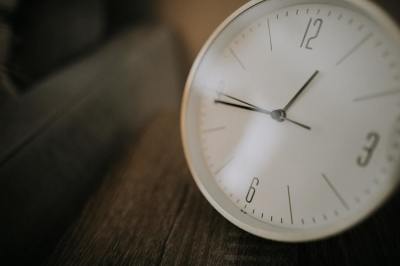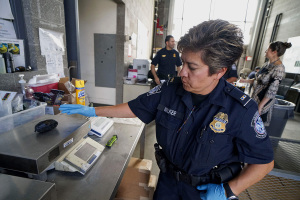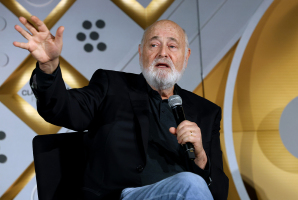The time for Daylight Saving is long gone

Why do Americans endure the needless suffering of losing an hour of sleep every March? This adds an unneeded nuisance as it is already difficult for Americans to sleep enough with their work schedules and the constant stress of war in Ukraine, raging inflation, open borders, increases in crime and many other serious problems afflicting the country.
This clock changing madness is part of our tradition of switching from standard time to daylight-saving time. The country will remain in daylight-saving time until the first Sunday of November when we “fall back” to standard time.
It is much better to “fall back” in November and gain an hour of sleep versus “spring forward” and lose an hour of sleep in March. However, any change to our “body clock,” can result in severe health problems such as a higher incidence of heart attacks. These negative health consequences were verified in a 2008 study conducted by the New England Journal of Medicine, which identified an increase in heart attacks in the three days following the implementation of daylight-saving time.
Heart attacks are not the only way Americans are dying due to daylight-saving time. In 2020, exhaustive research by professors at the University of Colorado at Boulder determined that there is a 6% increase in fatal automobile accidents in the week following the switch to daylight-saving time. The researchers examined 732,000 automobile accidents over a two-decade period and determined that the accidents caused by daylight-saving time led to the loss of 28 additional lives each year. These are lives that are needlessly lost due to a tradition that has outlived its usefulness.
In 2009, a study was done by researchers at Michigan State University for the Journal of Applied Psychology. It noted that daylight-saving time led to not only a loss of sleep, but also additional workplace injuries. Along with heart attacks, accidents and workplace injuries, there is undoubtedly a loss of work productivity that also accompanies losing an hour of sleep.
The deaths, injuries and lack of productivity are totally unnecessary. There is no good reason to change clocks as America is not an agrarian nation any longer and Americans do not need the extra hour of sunlight to farm. It may have been a good idea when it was implemented in 1918; however, over one century later, it has lost its usefulness. For most of the American people, changing clocks twice a year is both inconvenient and unpopular.
According to a 2019 Associated Press-NORC Poll, only 28% of Americans support changing the clocks twice a year. Of the respondents, 40% preferred year-round standard time, while 31% supported staying in daylight-saving time permanently.
Currently, Hawaii and Arizona are the only two states that do not switch to daylight-saving time and remain in standard time year-round. Many other states have passed legislation to remain in daylight-saving time throughout the year, but they are forbidden from making the change until the United States Congress passes legislation.
Fifteen states have enacted laws to adopt daylight-saving time throughout the year. In Louisiana, the year-round daylight-saving time legislation was authored by State Representative Dodie Horton (R-Haughton). According to Horton, this change will result in higher “productivity,” and “possibly less crime, fewer car accidents, more family time.” Her bill was passed by the Louisiana Legislature in 2020 and signed into law by the Governor, but it awaits congressional authorization.
In 2018, 62% of California voters voted to make daylight-saving time permanent year-round. Unfortunately, their state legislature has not approved a measure. This highlights a familiar problem, just because voters want something to happen does mean that politicians will act.
Fortunately, there is finally some hope there will be action by congress. A bi-partisan group of eight U.S. Senators have introduced the “Sunshine Protection Act of 2021.” This legislation will end the twice-yearly clock changing practices and make daylight-saving time permanent.
One of the sponsors of the legislation, U.S. Senator Marco Rubio (R-FL), complained that “I prefer Daylight Savings over Standard but in the end what I really want is to end this stupid twice a year time shift.”
Senator Rubio is right; the time shift is “stupid” and needs to end. To promote his legislation, Senator Rubio’s office issued a press release highlighting some of the reasons why our country should make daylight-saving time permanent. The potential positive effects include reducing childhood obesity, benefitting the agricultural economy, and reducing energy usage.
With bi-partisan support, the legislation can pass, and we can end the madness. Unlike much of the discussion on Capitol Hill, this issue crosses party lines. U.S. Senator Ron Wyden (D-OR), a co-sponsor of the “Sunshine Protection Act,” said that “Springing forward and falling back year after year only creates unnecessary confusion while harming Americans’ health and our economy.”
U.S. Senator Cindy Hyde-Smith (R-MS) is another sponsor of the legislation. She believes our country should make daylight-saving time permanent because of “The public safety improvements, economic benefits, and the wellbeing of the American people.”
It is now incumbent on the American people to contact their senators and representatives in Washington D.C. and demand support for this legislation. Previous efforts by Rubio and others have failed because similar legislation was not even given a hearing in Congress.
Hopefully, this bill, because of the bi-partisan support, will be passed by the Senate Commerce Committee. If it is approved, it will move to the full Senate for a vote and then, if it passes, it will move over to the U.S. House of Representatives, where it will hopefully be well received. A bill approved by Congress and strongly supported by the American people will still need to be signed by President Joe Biden to become law.
It is time for common sense to prevail and for the “Sunshine Protection Act” to become law in our country. This is a rare issue that can unite an overwhelming majority of Americans, but to succeed, we need to make our voices heard on Capitol Hill.



























